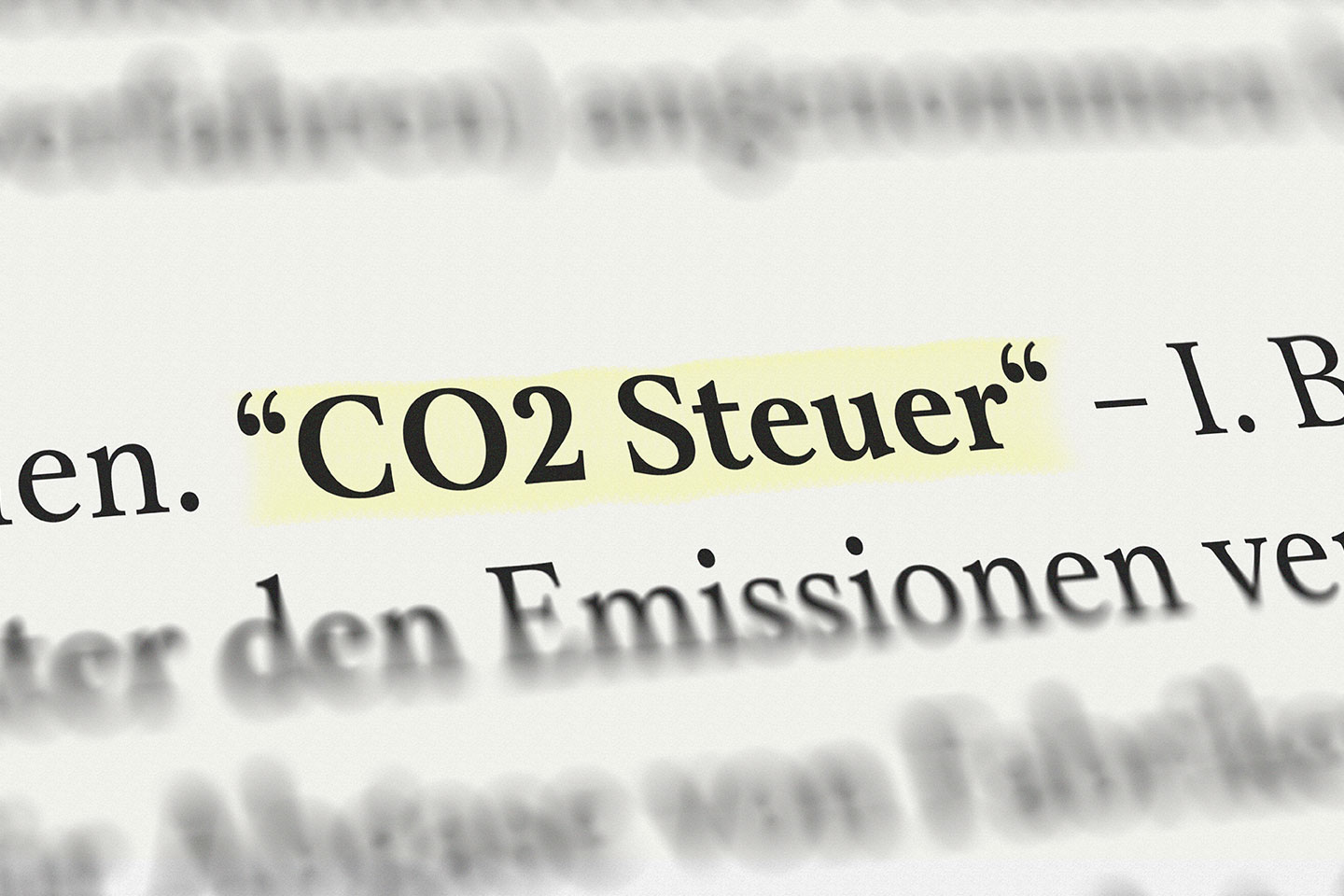Market & Figures / 31-08-2023

For house and flat owners, the topic of the “CO2 price” is coming up because from this year it will be split between tenant and landlord. In a way, it is a tax (even if it is not officially called that) that the landlord partly takes over for the tenant – probably unique in the already Kafkaesque German levy and tax system. The higher the tenant’s consumption, the more the landlord has to pay. And, of course, VAT will be added on top of the levy.
CO2 price to be increased step by step
And as if this were not enough, the CO2 price itself is being gradually increased. The German government just decided this at the beginning of July 2023 – an additional burden on all businesses, consumers, tenants and landlords in the middle of the biggest economic crisis in decades.
The CDU-led Merkel government had introduced this new tax in January 2021 and initially set it at 25 euros per tonne. This year it will be 30 euros, as at least the originally planned increase to 35 euros has been suspended. On the other hand, from next year onwards it will be a big deal: the traffic lights will raise the price of the national fuel emissions trading scheme to 40 euros per tonne of CO2 emitted in 2024. In 2025, the CO2 price is to rise to 50 euros, in 2026 to 65 euros. For 2027, the government expects a CO2 price of 85 euros.

The calculation of the CO2 price
Gas causes 202 grams of CO2 per kilowatt hour, oil 2660 grams per litre. With this basic knowledge, every owner of an oil or gas heating system or a landlord can calculate how much CO2 is emitted depending on the consumption of the system and the heating behaviour of the tenant – and what the state charges for it.
An example: For a 53-square-metre flat, the annual gas consumption is 5,000 kilowatt hours, which means CO2 emissions of exactly 1.01 tonnes (5,000 kilowatt hours x 202 grams). In a second step, this value must be multiplied by the CO2 price of the respective year, i.e. 30 euros for 2023. It is one of the peculiarities of German tax law that VAT is added even to levies and taxes. However, a reduced VAT rate of 7% applies to gas until the end of the heating period at the end of March 2024. This is one of the few temporary reliefs that should not go unmentioned.
Apportionment between landlord and tenant
The almost 30 euros plus 7 % additional tax thus result in 32.10 euros for 2023 in our example – which are divided up in a final step. Not just like that, of course: since the federal government wants it to be “fair”, this is done within a ten-step model. Depending on the energy condition of the house and the associated CO2 emissions per square metre – which is stated in the energy certificate – landlords would pay 95% of the CO2 price in the worst case. If emissions are very low, tenants would have to bear the expense alone. The meticulous concept is intended to encourage landlords to carry out energy-saving renovations – which, however, can quickly cost several tens of thousands of euros, as we have known at least since the debates on the Heating Act and the EU’s renovation requirements.
Many people might think that it would be better to pay the CO2 tax. So in the worst case, in our example, the landlord will have to pay 30 euros – per flat. Even if this doesn’t sound much at first, the CO2 price will increase almost threefold by 2027, as mentioned above. And finally, it is only one of countless cost factors that make some homeowners wonder once again whether they shouldn’t sell their properties. For in addition to the financial burden, there is also the effort of calculating the respective CO2 quantities and CO2 costs. Fortunately, the Federal Ministry of Economics and Technology has an online calculator for this purpose, which can be used to work out the CO2 price, depending on the type of heating and the energetic condition of the house. The energy consumption of a house or flat – unless it is heated by a guest heating system – can be found in the annual heating bill. There you will also find the CO2 emissions, in total and broken down to the flat.
Of course, the amount that ultimately has to be paid depends on many aspects that are out of the landlord’s control. First and foremost, this includes the tenant’s heating behaviour and how cold and long the winter turns out to be. After all, politics alone is not one of the uncertainty factors that a landlord and property owner is confronted with.

